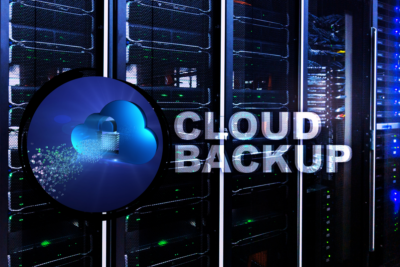When it comes to business continuity, a comprehensive data backup and recovery plan is essential. By making offsite data backups, you can eliminate the need to pay a ransom should your data become encrypted by a cybercriminal.
Calgary businesses rely heavily on efficient offsite data backup and a quick recovery time when needed. Choosing the right backup approach ultimately depends on your organization’s needs. There are two backup types: incremental and differential.
Incremental backups offer the advantage of efficiency by backing up only those changes made since the previous backup. This saves storage space, which in turn reduces storage costs, and reduces backup time. However, of the two types of backups, this one also requires a lengthy recovery process to restore the complete data.
On the other hand, differential backups provide a more comprehensive approach by backing up all the changes made since the last full backup. While this ensures a quicker data restoration process, it also takes longer to complete the backup and consumes more storage space.
Understanding the pros and cons of each backup method and the storage space required will help Calgary business leaders make a more informed decision about which backup method aligns more effectively with their business strategies.

Pros of Incremental Backups
Incremental backups have an advantage in terms of storage utilization. Because you only have to single out changes made since the previous backup, incremental backups significantly reduce the overall data size, which improves backup speed. This translates to cost savings in terms of storage requirements and time. For some organizations this makes incremental the more attractive of the two backup types.
Another key benefit of incremental backups is the reduced impact on system resources. As the backup process is streamlined, less CPU, memory, and network bandwidth are required, allowing other critical business operations to continue uninterrupted. This is particularly important for organizations with limited IT infrastructure or those that need to maintain high levels of system performance.
Incremental backups also offer greater flexibility in terms of scheduling and execution. Because the backup process is faster and less resource-intensive, businesses can schedule more frequent backups, ensuring that their data is better protected and more up to date. This can be beneficial for organizations that need to maintain a high level of data integrity and availability.
Cons of Incremental Backups
While incremental backups offer advantages in terms of efficiency and storage optimization, they also come with some drawbacks that Calgary businesses need to consider. One of the challenges with incremental backups is the increased complexity of the restoration process. Since the complete dataset is spread across multiple backup files, restoring data from an incremental backup can be more time-consuming and labor-intensive. If you need faster backups, differential backups may be more effective.
Another potential downside of incremental backups is the increased risk of data loss. If a single incremental backup is corrupted or lost, the entire chain of backups can be impacted, making it difficult or even impossible to fully restore the data. This can be especially problematic for businesses that rely on their data for mission-critical operations or those that operate in highly regulated industries.
Additionally, the management of incremental backups can be more complex compared to full backups. Businesses need to carefully track and maintain the backup chain, ensuring that each incremental backup is properly labeled and stored. This can be a time-consuming and error-prone process, especially for organizations with large and rapidly growing datasets.
Pros of Differential Backups
One of the primary advantages of differential backups is the simplicity of the restoration process. Since each differential backup contains a comprehensive set of changes made since the last full backup, businesses can quickly and easily restore their data from the most recent differential backup, without the need to piece together multiple incremental backups. This can be beneficial in the event of a disaster or system failure, where the ability to quickly restore data is critical.
Another key benefit of differential backups is the increased level of data protection offered. Because each differential backup contains a complete set of changes, the risk of data loss due to a corrupted or missing backup is reduced. This can be extremely important for businesses that operate in highly regulated industries or those that need to maintain strict data compliance requirements.
Differential backups also provide a more straightforward backup management process compared to incremental backups. Since each differential backup is self-contained, businesses don’t have to worry about maintaining a complex chain of incremental backups. This can simplify the overall backup strategy and reduce the risk of errors or misconfigurations.
Cons of Differential Backups
While differential backups offer several advantages, they also come with some drawbacks. One of the primary disadvantages of differential backups is the increased storage requirements. Since each differential backup contains a complete set of changes since the last full backup, the overall data size and disk space can be significantly larger than that of incremental backups.
Another potential downside of differential backups is the longer backup times. Because the backup process needs to capture a larger volume of data, the backup duration can be longer, which can impact system performance and availability. This can be challenging for businesses with limited IT resources or those that need to maintain high levels of system uptime.
Additionally, differential backups may not be as efficient in terms of storage utilization as incremental backups. While the restoration process is simpler, the increased storage requirements can lead to higher costs and potentially impact the overall data management strategy.
Comparing Incremental and Differential Backups
When comparing the efficiency of incremental and differential backups, both approaches have their own strengths and weaknesses. Understanding the key differences between these two backup strategies can help you make informed decisions that align with your specific data management needs.
Factors to Consider When Choosing Between Incremental and Differential Backups
Organizations need to take into account a variety of factors, to determine the most suitable approach for their specific needs. Businesses with limited IT resources or those that need to maintain high levels of system performance may find incremental backups more advantageous due to their reduced impact on system resources. Differential backups, on the other hand, may be better suited for organizations with more robust IT infrastructures.
Making the Right Choice for Your Backup Strategy

When it comes to choosing the right backup strategy, there is no one-size-fits-all solution. The choice between these two backup options ultimately depends on the unique needs and requirements of your business. By carefully evaluating the pros and cons of each approach, as well as the key factors that influence your data management needs, you can make an informed decision that will help ensure the long-term protection and availability of your critical data.
Regardless of your choice, it’s important to regularly review and update your data backup and recovery strategy to address changing business requirements and technological advancements. As your organization grows and evolves, your data management needs may also change, necessitating a reevaluation of your backup approach that addresses any potential disaster recovery scenario you may encounter.
Ultimately, the goal is to strike the right balance between efficiency, data protection, and restoration capabilities with your backup plan. By understanding the nuances of incremental and differential backup solutions, you can develop a comprehensive backup strategy that meets the unique needs of your business, ensuring the long-term viability and resilience of your data and a comprehensive solution for your backup files.
Small- and medium-sized enterprises (SMEs) in Calgary face the constant challenge of remaining competitive while also maintaining a strong focus on cybersecurity. As a top-rated managed service provider (MSP) in Calgary, we help SMEs achieve their goals by providing them with reliable and secure support. We can help your organization balance productivity and streamline operations, to deliver the best customer experience while simultaneously protecting your network and your customers’ data. Partnering with an experienced MSP like The ITeam can significantly enhance the efficiency and security of your SME by adopting a proactive approach to IT support and strategy. Request an assessment today.


